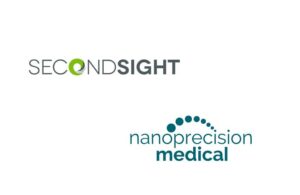 Second Sight Medical (Nasdaq:EYES) announced today that it completed its merger with Nano Precision Medical and rebranded.
Second Sight Medical (Nasdaq:EYES) announced today that it completed its merger with Nano Precision Medical and rebranded.
In February, the two companies entered into a definitive agreement under which Nano Precision Medical (NPM) would merge with a wholly-owned subsidiary of Second Sight in an all-stock transaction, with NPM as the surviving company under Second Sight’s ownership.
As a combined company, the aim centers around developing drug-device medical implants. NPM develops miniaturized, subdermal drug implants using its NanoPortal technology for enabling long-term, near-constant-rate delivery of a broad range of medicines to treat chronic diseases.
In connection with the merger, Second Sight changed its name to Vivani Medical, with its common stock set to trade on the Nasdaq market under the “VANI” ticker.
Upon the merger’s completion, Vivani has approximately $55 million in cash to advance the development of its portfolio, which includes the NPM-119 exenatide implant, its lead asset. The company will push the asset into clinical-stage development for the treatment of patients with Type 2 diabetes.
It will also look to identify and execute strategic options to advance its clinical-stage Orion visual prosthetic device to treat individuals with blindness due to a wide range of underlying causes. NPM CEO Adam Mendelsohn will lead the company with his leadership team of industry veterans, according to a news release.
“The completion of the merger marks a significant milestone for Vivani as we continue to grow the company with a strong team, sufficient funding, and an attractive group of investors who support our pursuit to develop and commercialize a new portfolio of miniaturized drug implants which can effectively address medication non-adherence, a major challenge in the treatment of chronic disease, including Type II diabetes,” Mendelsohn said. “We are also committed to identifying a sustainable path forward to bring Second Sight’s Orion visual cortical prosthesis system to individuals who are blind due to a wide range of causes.”
Mendelsohn added that he expects the first application of NanoPortal technology to be ready for in-human evaluations around the end of this year with NPM-119.
“Medication non-adherence for Type II diabetes patients taking oral or injectable therapies is approximately 50%,” he said. “We believe a six-month implant can provide an important alternative for non-adherent patients and the physicians who treat them.”
